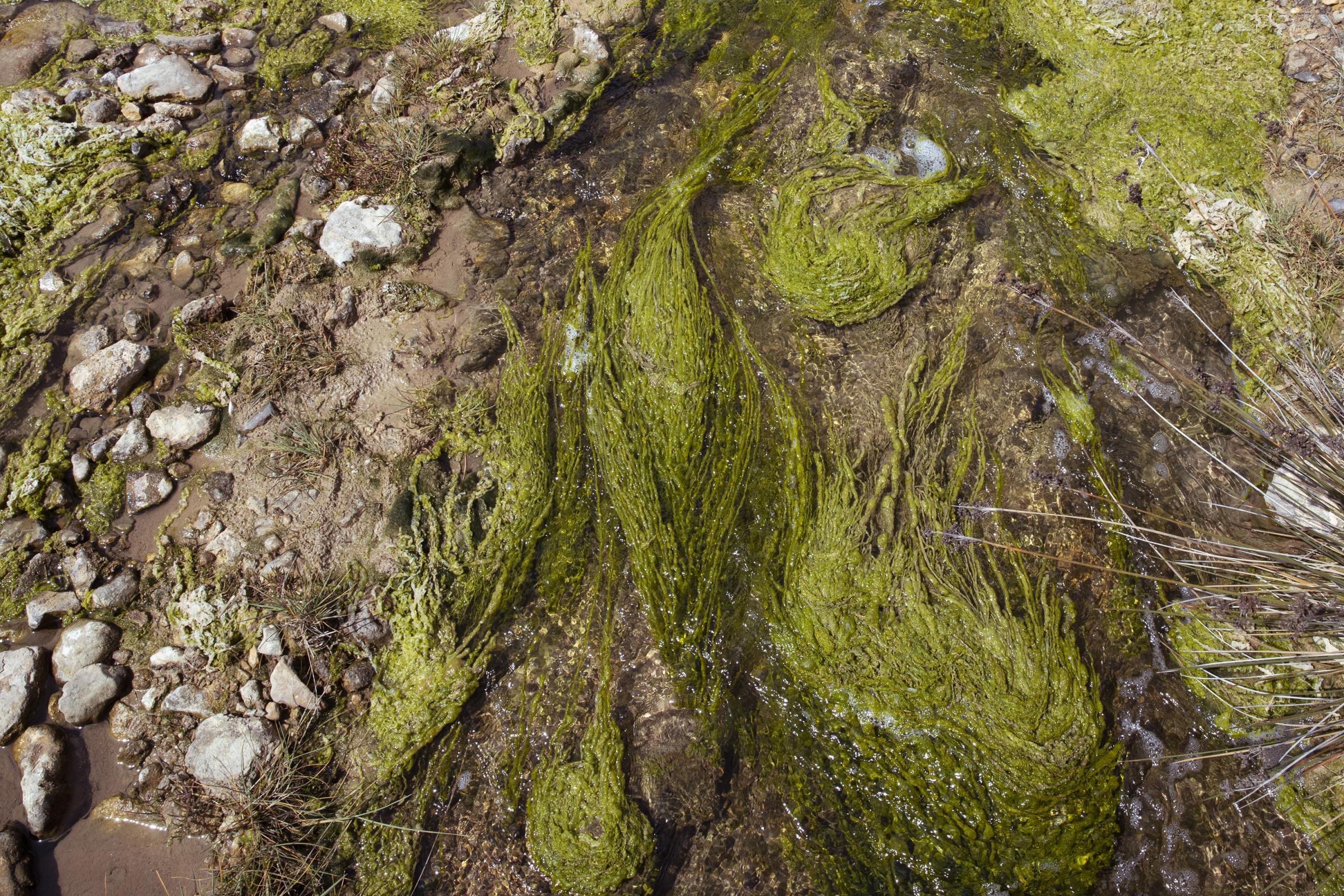
The town of Añana, part of the Basque Country, has a very particular history as it is a globally representative example of the history of salt and a point of high religiousness in Spain.
This thousand-year-old salt valley, which during the Triassic period was covered by the waters of a vast sea, is a unique phenomenon in the world, since it has been producing salt for 6,500 years in a process so traditional that it has hardly changed since the Romans.
It is believed to be the oldest salt pan in the world, the Romans in the 2nd century BC built the salt pan practically as we know it today.
Salt was considered the white gold of humanity. Around them, true colonial empires dominated by clans were created, sometimes religious, other times royal, and in most cases dominated by feudal families.
In the 5th century, the Roman settlement was undone and the population moved to live in the current Valle del Salado where they gradually grouped together according to feudal and ecclesiastical habits in small villages where everyone wanted to control production, giving rise to the creation of the community of knights and heirs of the Reales Salinas de Añana that is still in force.
The end of the state salt monopoly caused the town's activity to be ruined due to the high costs and the cheapest and most accessible maritime salt flats. Añana saw its production disappear to near disappearance. Today, thanks to the work of the Del Valle Salado Foundation, it is fully operational with a booming salt market.
This thousand-year-old salt valley, which during the Triassic period was covered by the waters of a vast sea, is a unique phenomenon in the world, since it has been producing salt for 6,500 years in a process so traditional that it has hardly changed since the Romans.
It is believed to be the oldest salt pan in the world, the Romans in the 2nd century BC built the salt pan practically as we know it today.
Salt was considered the white gold of humanity. Around them, true colonial empires dominated by clans were created, sometimes religious, other times royal, and in most cases dominated by feudal families.
In the 5th century, the Roman settlement was undone and the population moved to live in the current Valle del Salado where they gradually grouped together according to feudal and ecclesiastical habits in small villages where everyone wanted to control production, giving rise to the creation of the community of knights and heirs of the Reales Salinas de Añana that is still in force.
The end of the state salt monopoly caused the town's activity to be ruined due to the high costs and the cheapest and most accessible maritime salt flats. Añana saw its production disappear to near disappearance. Today, thanks to the work of the Del Valle Salado Foundation, it is fully operational with a booming salt market.
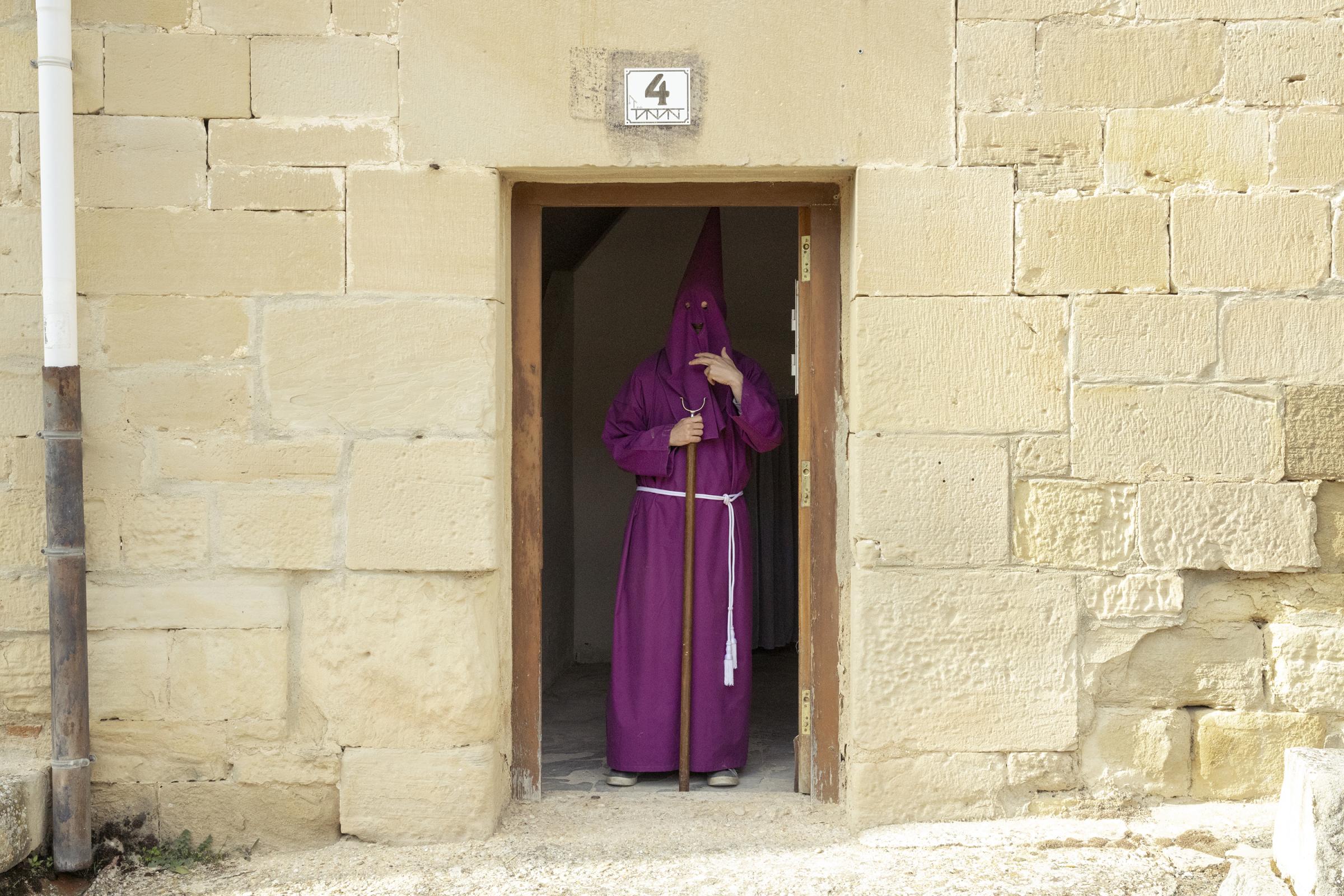
The town of Añana, part of the Basque Country, has a very particular history as it is a globally representative example of the history of salt and a point of high religiousness in Spain.
This thousand-year-old salt valley, which during the Triassic period was covered by the waters of a vast sea, is a unique phenomenon in the world, since it has been producing salt for 6,500 years in a process so traditional that it has hardly changed since the Romans.
It is believed to be the oldest salt pan in the world, the Romans in the 2nd century BC built the salt pan practically as we know it today.
Salt was considered the white gold of humanity. Around them, true colonial empires dominated by clans were created, sometimes religious, other times royal, and in most cases dominated by feudal families.
In the 5th century, the Roman settlement was undone and the population moved to live in the current Valle del Salado where they gradually grouped together according to feudal and ecclesiastical habits in small villages where everyone wanted to control production, giving rise to the creation of the community of knights and heirs of the Reales Salinas de Añana that is still in force.
The end of the state salt monopoly caused the town's activity to be ruined due to the high costs and the cheapest and most accessible maritime salt flats. Añana saw its production disappear to near disappearance. Today, thanks to the work of the Del Valle Salado Foundation, it is fully operational with a booming salt market.
This thousand-year-old salt valley, which during the Triassic period was covered by the waters of a vast sea, is a unique phenomenon in the world, since it has been producing salt for 6,500 years in a process so traditional that it has hardly changed since the Romans.
It is believed to be the oldest salt pan in the world, the Romans in the 2nd century BC built the salt pan practically as we know it today.
Salt was considered the white gold of humanity. Around them, true colonial empires dominated by clans were created, sometimes religious, other times royal, and in most cases dominated by feudal families.
In the 5th century, the Roman settlement was undone and the population moved to live in the current Valle del Salado where they gradually grouped together according to feudal and ecclesiastical habits in small villages where everyone wanted to control production, giving rise to the creation of the community of knights and heirs of the Reales Salinas de Añana that is still in force.
The end of the state salt monopoly caused the town's activity to be ruined due to the high costs and the cheapest and most accessible maritime salt flats. Añana saw its production disappear to near disappearance. Today, thanks to the work of the Del Valle Salado Foundation, it is fully operational with a booming salt market.
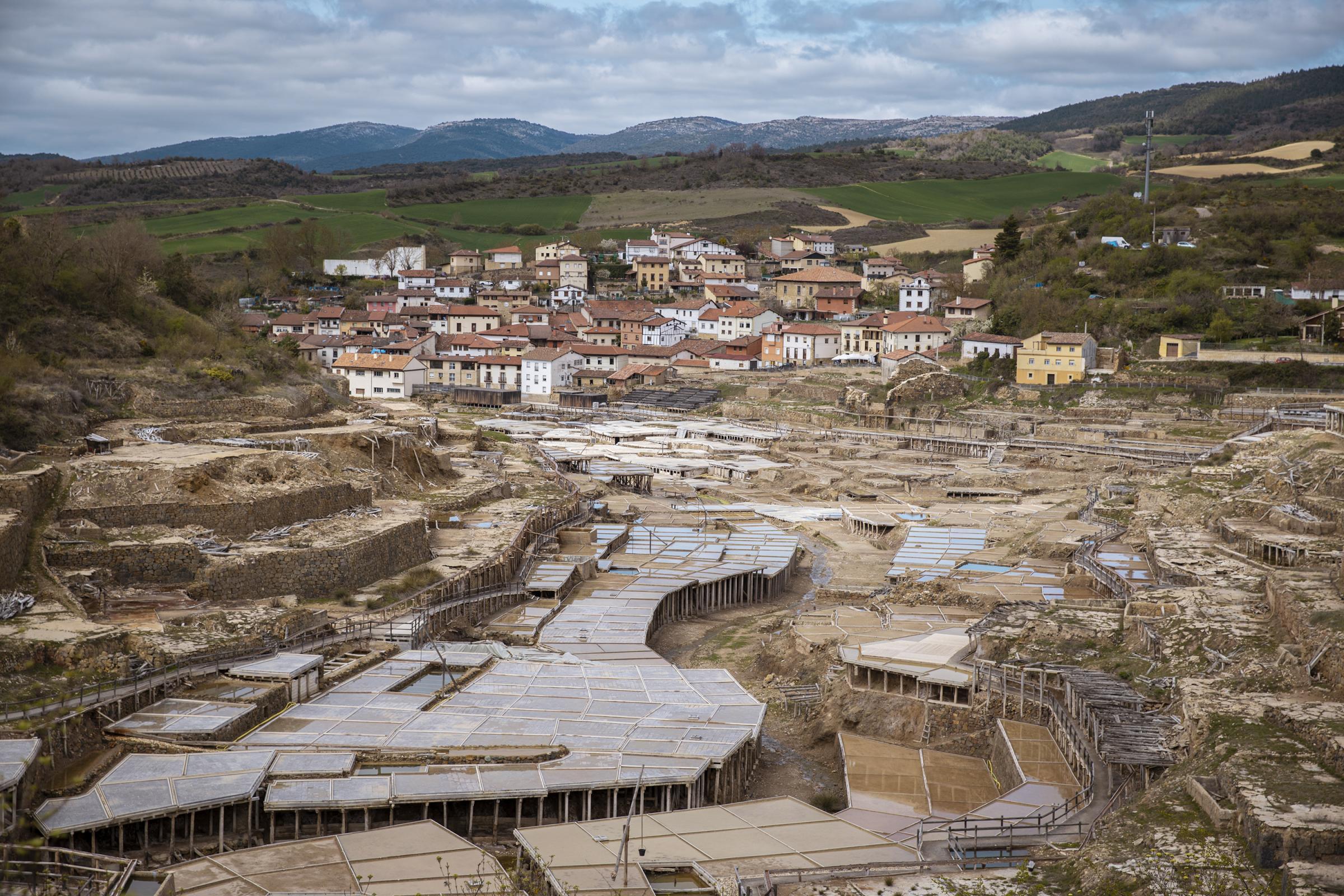
The town of Añana, part of the Basque Country, has a very particular history as it is a globally representative example of the history of salt and a point of high religiousness in Spain.
This thousand-year-old salt valley, which during the Triassic period was covered by the waters of a vast sea, is a unique phenomenon in the world, since it has been producing salt for 6,500 years in a process so traditional that it has hardly changed since the Romans.
It is believed to be the oldest salt pan in the world, the Romans in the 2nd century BC built the salt pan practically as we know it today.
Salt was considered the white gold of humanity. Around them, true colonial empires dominated by clans were created, sometimes religious, other times royal, and in most cases dominated by feudal families.
In the 5th century, the Roman settlement was undone and the population moved to live in the current Valle del Salado where they gradually grouped together according to feudal and ecclesiastical habits in small villages where everyone wanted to control production, giving rise to the creation of the community of knights and heirs of the Reales Salinas de Añana that is still in force.
The end of the state salt monopoly caused the town's activity to be ruined due to the high costs and the cheapest and most accessible maritime salt flats. Añana saw its production disappear to near disappearance. Today, thanks to the work of the Del Valle Salado Foundation, it is fully operational with a booming salt market.
This thousand-year-old salt valley, which during the Triassic period was covered by the waters of a vast sea, is a unique phenomenon in the world, since it has been producing salt for 6,500 years in a process so traditional that it has hardly changed since the Romans.
It is believed to be the oldest salt pan in the world, the Romans in the 2nd century BC built the salt pan practically as we know it today.
Salt was considered the white gold of humanity. Around them, true colonial empires dominated by clans were created, sometimes religious, other times royal, and in most cases dominated by feudal families.
In the 5th century, the Roman settlement was undone and the population moved to live in the current Valle del Salado where they gradually grouped together according to feudal and ecclesiastical habits in small villages where everyone wanted to control production, giving rise to the creation of the community of knights and heirs of the Reales Salinas de Añana that is still in force.
The end of the state salt monopoly caused the town's activity to be ruined due to the high costs and the cheapest and most accessible maritime salt flats. Añana saw its production disappear to near disappearance. Today, thanks to the work of the Del Valle Salado Foundation, it is fully operational with a booming salt market.
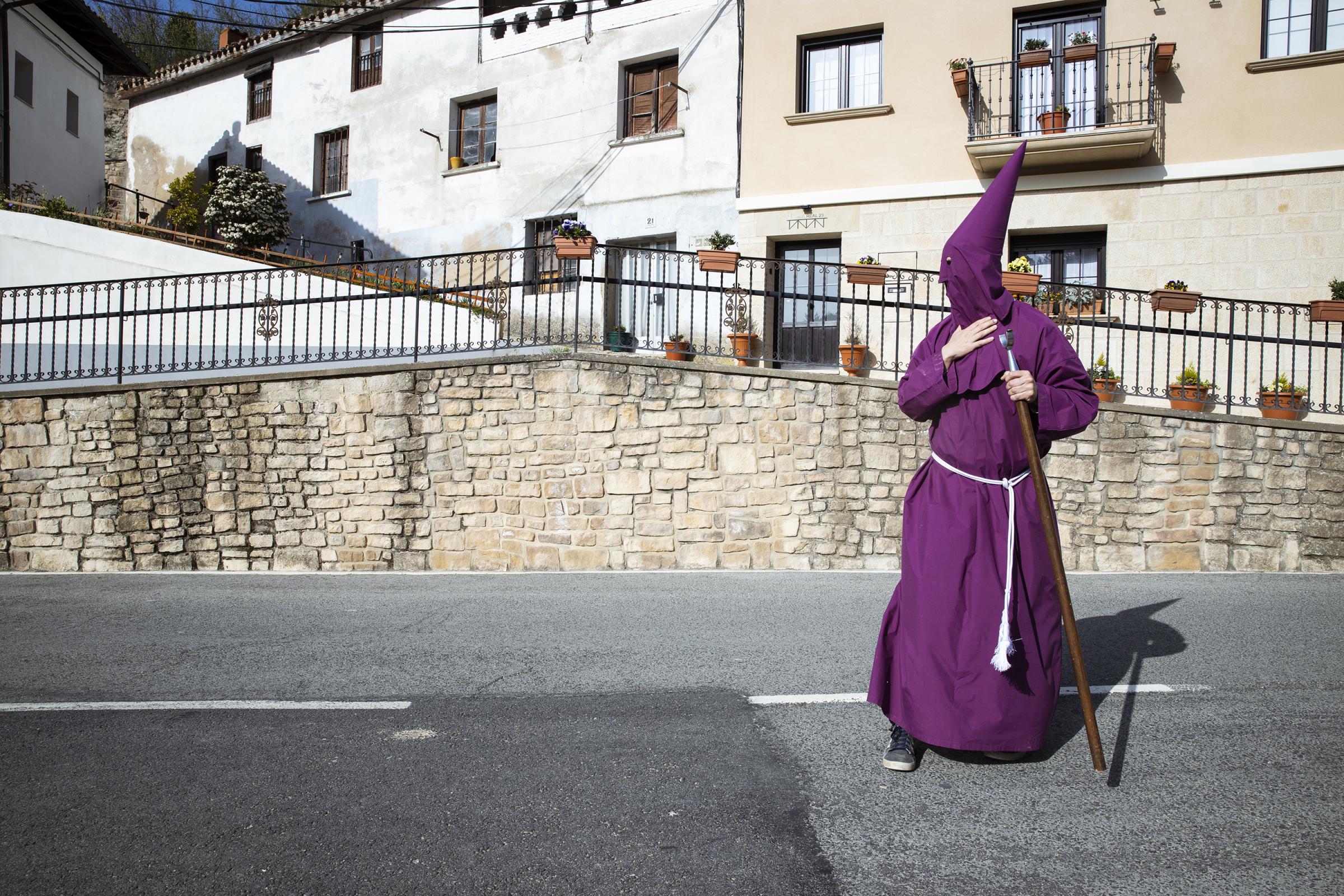
The town of Añana, part of the Basque Country, has a very particular history as it is a globally representative example of the history of salt and a point of high religiousness in Spain.
This thousand-year-old salt valley, which during the Triassic period was covered by the waters of a vast sea, is a unique phenomenon in the world, since it has been producing salt for 6,500 years in a process so traditional that it has hardly changed since the Romans.
It is believed to be the oldest salt pan in the world, the Romans in the 2nd century BC built the salt pan practically as we know it today.
Salt was considered the white gold of humanity. Around them, true colonial empires dominated by clans were created, sometimes religious, other times royal, and in most cases dominated by feudal families.
In the 5th century, the Roman settlement was undone and the population moved to live in the current Valle del Salado where they gradually grouped together according to feudal and ecclesiastical habits in small villages where everyone wanted to control production, giving rise to the creation of the community of knights and heirs of the Reales Salinas de Añana that is still in force.
The end of the state salt monopoly caused the town's activity to be ruined due to the high costs and the cheapest and most accessible maritime salt flats. Añana saw its production disappear to near disappearance. Today, thanks to the work of the Del Valle Salado Foundation, it is fully operational with a booming salt market.
This thousand-year-old salt valley, which during the Triassic period was covered by the waters of a vast sea, is a unique phenomenon in the world, since it has been producing salt for 6,500 years in a process so traditional that it has hardly changed since the Romans.
It is believed to be the oldest salt pan in the world, the Romans in the 2nd century BC built the salt pan practically as we know it today.
Salt was considered the white gold of humanity. Around them, true colonial empires dominated by clans were created, sometimes religious, other times royal, and in most cases dominated by feudal families.
In the 5th century, the Roman settlement was undone and the population moved to live in the current Valle del Salado where they gradually grouped together according to feudal and ecclesiastical habits in small villages where everyone wanted to control production, giving rise to the creation of the community of knights and heirs of the Reales Salinas de Añana that is still in force.
The end of the state salt monopoly caused the town's activity to be ruined due to the high costs and the cheapest and most accessible maritime salt flats. Añana saw its production disappear to near disappearance. Today, thanks to the work of the Del Valle Salado Foundation, it is fully operational with a booming salt market.
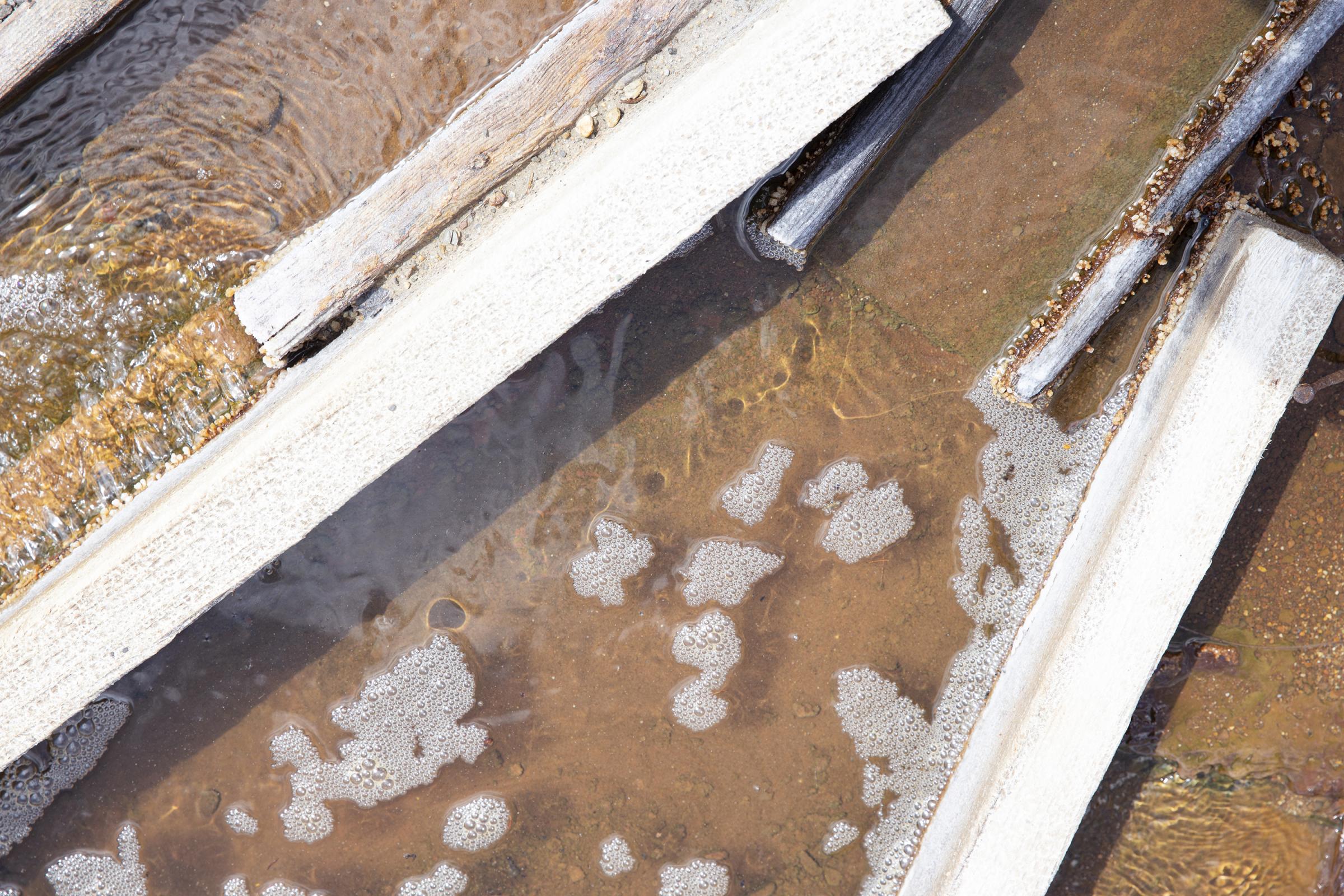
The town of Añana, part of the Basque Country, has a very particular history as it is a globally representative example of the history of salt and a point of high religiousness in Spain.
This thousand-year-old salt valley, which during the Triassic period was covered by the waters of a vast sea, is a unique phenomenon in the world, since it has been producing salt for 6,500 years in a process so traditional that it has hardly changed since the Romans.
It is believed to be the oldest salt pan in the world, the Romans in the 2nd century BC built the salt pan practically as we know it today.
Salt was considered the white gold of humanity. Around them, true colonial empires dominated by clans were created, sometimes religious, other times royal, and in most cases dominated by feudal families.
In the 5th century, the Roman settlement was undone and the population moved to live in the current Valle del Salado where they gradually grouped together according to feudal and ecclesiastical habits in small villages where everyone wanted to control production, giving rise to the creation of the community of knights and heirs of the Reales Salinas de Añana that is still in force.
The end of the state salt monopoly caused the town's activity to be ruined due to the high costs and the cheapest and most accessible maritime salt flats. Añana saw its production disappear to near disappearance. Today, thanks to the work of the Del Valle Salado Foundation, it is fully operational with a booming salt market.
This thousand-year-old salt valley, which during the Triassic period was covered by the waters of a vast sea, is a unique phenomenon in the world, since it has been producing salt for 6,500 years in a process so traditional that it has hardly changed since the Romans.
It is believed to be the oldest salt pan in the world, the Romans in the 2nd century BC built the salt pan practically as we know it today.
Salt was considered the white gold of humanity. Around them, true colonial empires dominated by clans were created, sometimes religious, other times royal, and in most cases dominated by feudal families.
In the 5th century, the Roman settlement was undone and the population moved to live in the current Valle del Salado where they gradually grouped together according to feudal and ecclesiastical habits in small villages where everyone wanted to control production, giving rise to the creation of the community of knights and heirs of the Reales Salinas de Añana that is still in force.
The end of the state salt monopoly caused the town's activity to be ruined due to the high costs and the cheapest and most accessible maritime salt flats. Añana saw its production disappear to near disappearance. Today, thanks to the work of the Del Valle Salado Foundation, it is fully operational with a booming salt market.
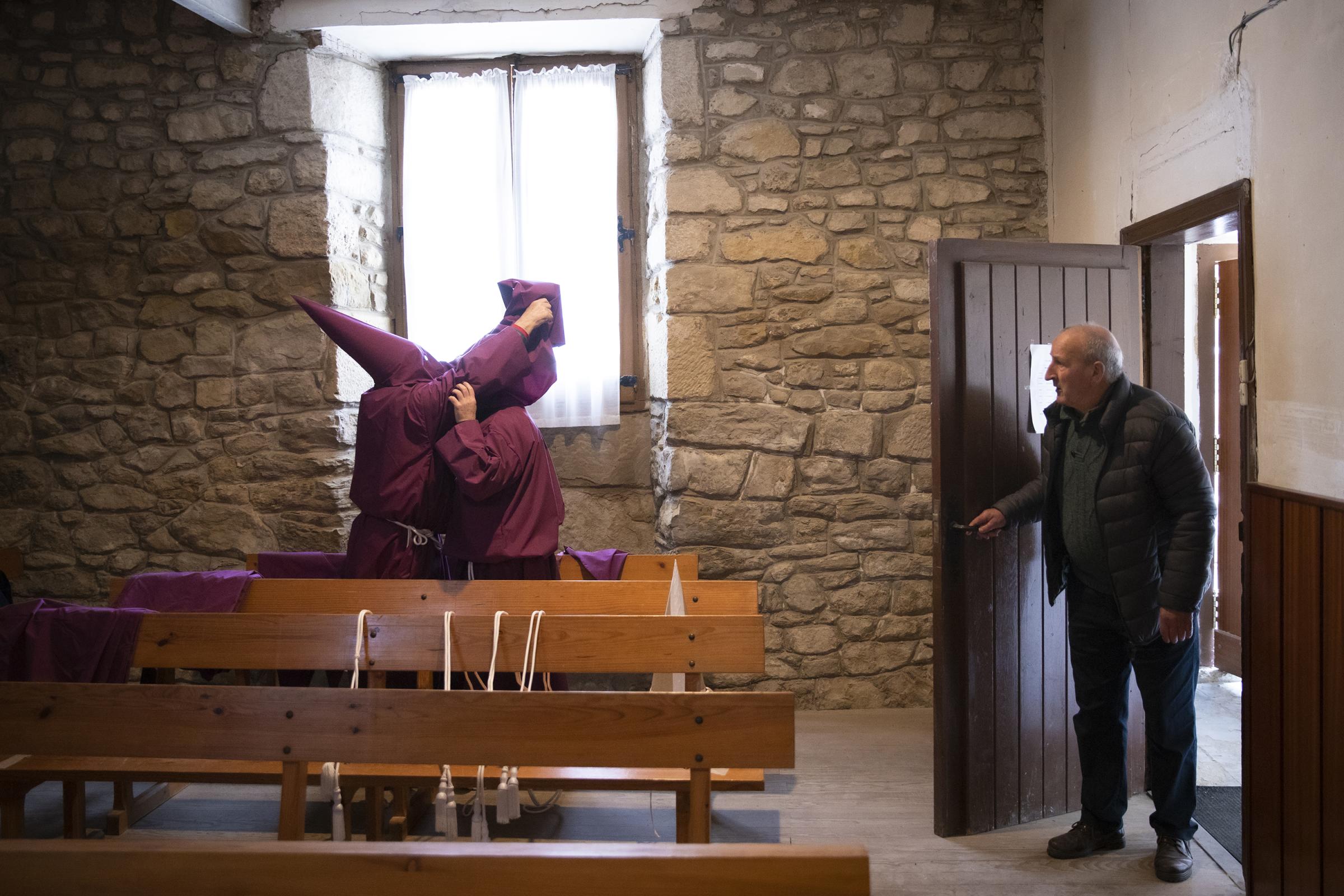
The town of Añana, part of the Basque Country, has a very particular history as it is a globally representative example of the history of salt and a point of high religiousness in Spain.
This thousand-year-old salt valley, which during the Triassic period was covered by the waters of a vast sea, is a unique phenomenon in the world, since it has been producing salt for 6,500 years in a process so traditional that it has hardly changed since the Romans.
It is believed to be the oldest salt pan in the world, the Romans in the 2nd century BC built the salt pan practically as we know it today.
Salt was considered the white gold of humanity. Around them, true colonial empires dominated by clans were created, sometimes religious, other times royal, and in most cases dominated by feudal families.
In the 5th century, the Roman settlement was undone and the population moved to live in the current Valle del Salado where they gradually grouped together according to feudal and ecclesiastical habits in small villages where everyone wanted to control production, giving rise to the creation of the community of knights and heirs of the Reales Salinas de Añana that is still in force.
The end of the state salt monopoly caused the town's activity to be ruined due to the high costs and the cheapest and most accessible maritime salt flats. Añana saw its production disappear to near disappearance. Today, thanks to the work of the Del Valle Salado Foundation, it is fully operational with a booming salt market.
This thousand-year-old salt valley, which during the Triassic period was covered by the waters of a vast sea, is a unique phenomenon in the world, since it has been producing salt for 6,500 years in a process so traditional that it has hardly changed since the Romans.
It is believed to be the oldest salt pan in the world, the Romans in the 2nd century BC built the salt pan practically as we know it today.
Salt was considered the white gold of humanity. Around them, true colonial empires dominated by clans were created, sometimes religious, other times royal, and in most cases dominated by feudal families.
In the 5th century, the Roman settlement was undone and the population moved to live in the current Valle del Salado where they gradually grouped together according to feudal and ecclesiastical habits in small villages where everyone wanted to control production, giving rise to the creation of the community of knights and heirs of the Reales Salinas de Añana that is still in force.
The end of the state salt monopoly caused the town's activity to be ruined due to the high costs and the cheapest and most accessible maritime salt flats. Añana saw its production disappear to near disappearance. Today, thanks to the work of the Del Valle Salado Foundation, it is fully operational with a booming salt market.
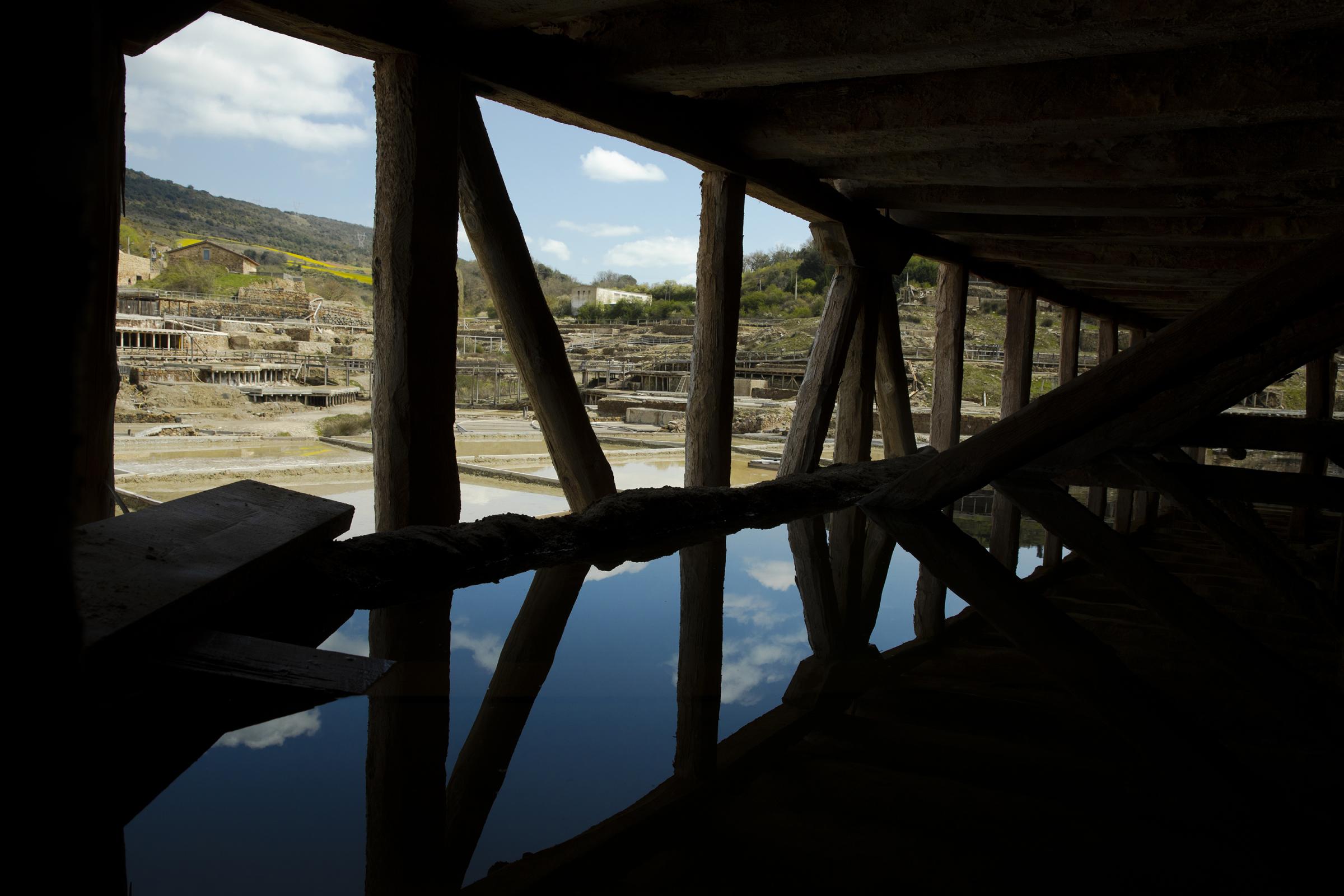
The town of Añana, part of the Basque Country, has a very particular history as it is a globally representative example of the history of salt and a point of high religiousness in Spain.
This thousand-year-old salt valley, which during the Triassic period was covered by the waters of a vast sea, is a unique phenomenon in the world, since it has been producing salt for 6,500 years in a process so traditional that it has hardly changed since the Romans.
It is believed to be the oldest salt pan in the world, the Romans in the 2nd century BC built the salt pan practically as we know it today.
Salt was considered the white gold of humanity. Around them, true colonial empires dominated by clans were created, sometimes religious, other times royal, and in most cases dominated by feudal families.
In the 5th century, the Roman settlement was undone and the population moved to live in the current Valle del Salado where they gradually grouped together according to feudal and ecclesiastical habits in small villages where everyone wanted to control production, giving rise to the creation of the community of knights and heirs of the Reales Salinas de Añana that is still in force.
The end of the state salt monopoly caused the town's activity to be ruined due to the high costs and the cheapest and most accessible maritime salt flats. Añana saw its production disappear to near disappearance. Today, thanks to the work of the Del Valle Salado Foundation, it is fully operational with a booming salt market.
This thousand-year-old salt valley, which during the Triassic period was covered by the waters of a vast sea, is a unique phenomenon in the world, since it has been producing salt for 6,500 years in a process so traditional that it has hardly changed since the Romans.
It is believed to be the oldest salt pan in the world, the Romans in the 2nd century BC built the salt pan practically as we know it today.
Salt was considered the white gold of humanity. Around them, true colonial empires dominated by clans were created, sometimes religious, other times royal, and in most cases dominated by feudal families.
In the 5th century, the Roman settlement was undone and the population moved to live in the current Valle del Salado where they gradually grouped together according to feudal and ecclesiastical habits in small villages where everyone wanted to control production, giving rise to the creation of the community of knights and heirs of the Reales Salinas de Añana that is still in force.
The end of the state salt monopoly caused the town's activity to be ruined due to the high costs and the cheapest and most accessible maritime salt flats. Añana saw its production disappear to near disappearance. Today, thanks to the work of the Del Valle Salado Foundation, it is fully operational with a booming salt market.
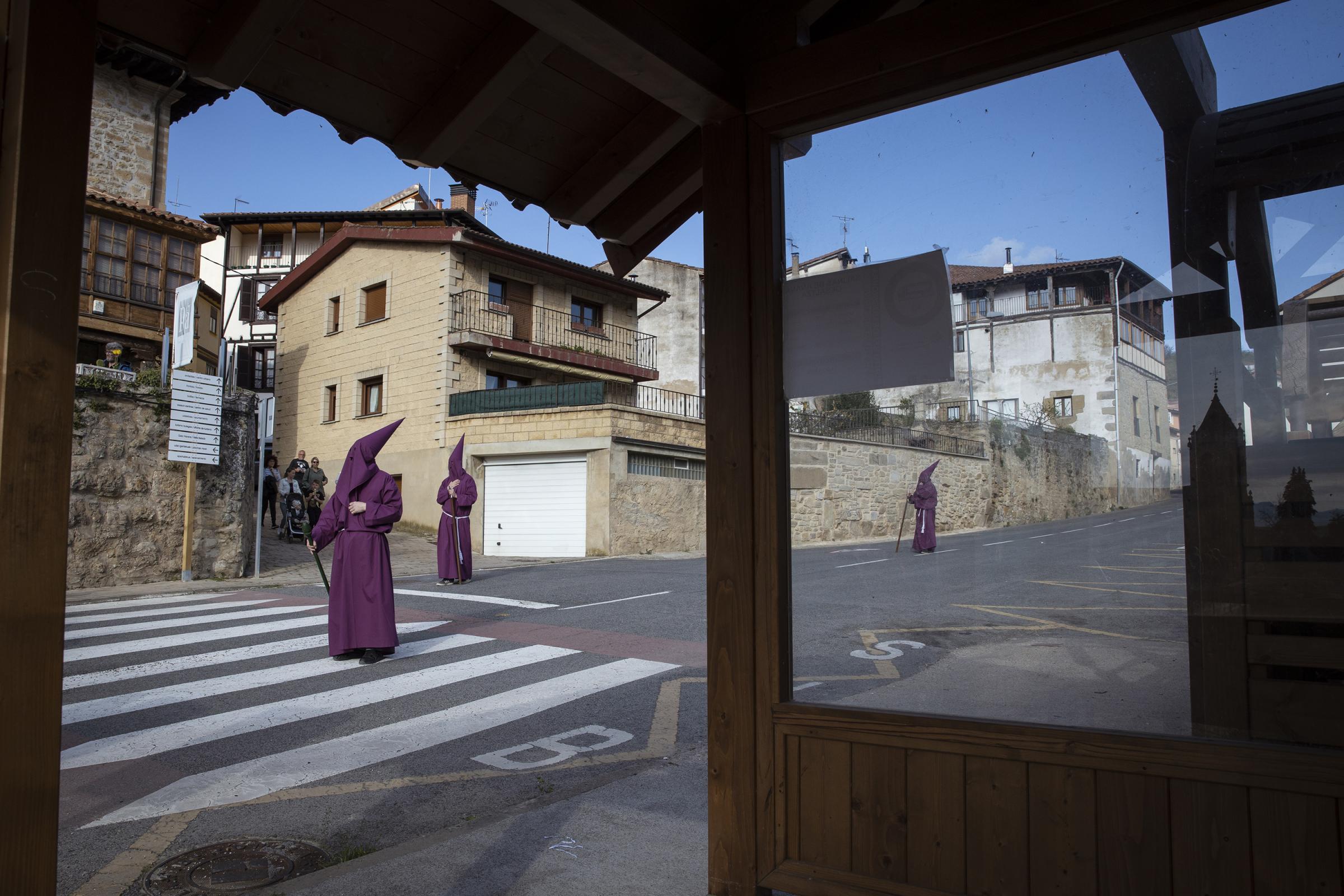
The town of Añana, part of the Basque Country, has a very particular history as it is a globally representative example of the history of salt and a point of high religiousness in Spain.
This thousand-year-old salt valley, which during the Triassic period was covered by the waters of a vast sea, is a unique phenomenon in the world, since it has been producing salt for 6,500 years in a process so traditional that it has hardly changed since the Romans.
It is believed to be the oldest salt pan in the world, the Romans in the 2nd century BC built the salt pan practically as we know it today.
Salt was considered the white gold of humanity. Around them, true colonial empires dominated by clans were created, sometimes religious, other times royal, and in most cases dominated by feudal families.
In the 5th century, the Roman settlement was undone and the population moved to live in the current Valle del Salado where they gradually grouped together according to feudal and ecclesiastical habits in small villages where everyone wanted to control production, giving rise to the creation of the community of knights and heirs of the Reales Salinas de Añana that is still in force.
The end of the state salt monopoly caused the town's activity to be ruined due to the high costs and the cheapest and most accessible maritime salt flats. Añana saw its production disappear to near disappearance. Today, thanks to the work of the Del Valle Salado Foundation, it is fully operational with a booming salt market.
This thousand-year-old salt valley, which during the Triassic period was covered by the waters of a vast sea, is a unique phenomenon in the world, since it has been producing salt for 6,500 years in a process so traditional that it has hardly changed since the Romans.
It is believed to be the oldest salt pan in the world, the Romans in the 2nd century BC built the salt pan practically as we know it today.
Salt was considered the white gold of humanity. Around them, true colonial empires dominated by clans were created, sometimes religious, other times royal, and in most cases dominated by feudal families.
In the 5th century, the Roman settlement was undone and the population moved to live in the current Valle del Salado where they gradually grouped together according to feudal and ecclesiastical habits in small villages where everyone wanted to control production, giving rise to the creation of the community of knights and heirs of the Reales Salinas de Añana that is still in force.
The end of the state salt monopoly caused the town's activity to be ruined due to the high costs and the cheapest and most accessible maritime salt flats. Añana saw its production disappear to near disappearance. Today, thanks to the work of the Del Valle Salado Foundation, it is fully operational with a booming salt market.
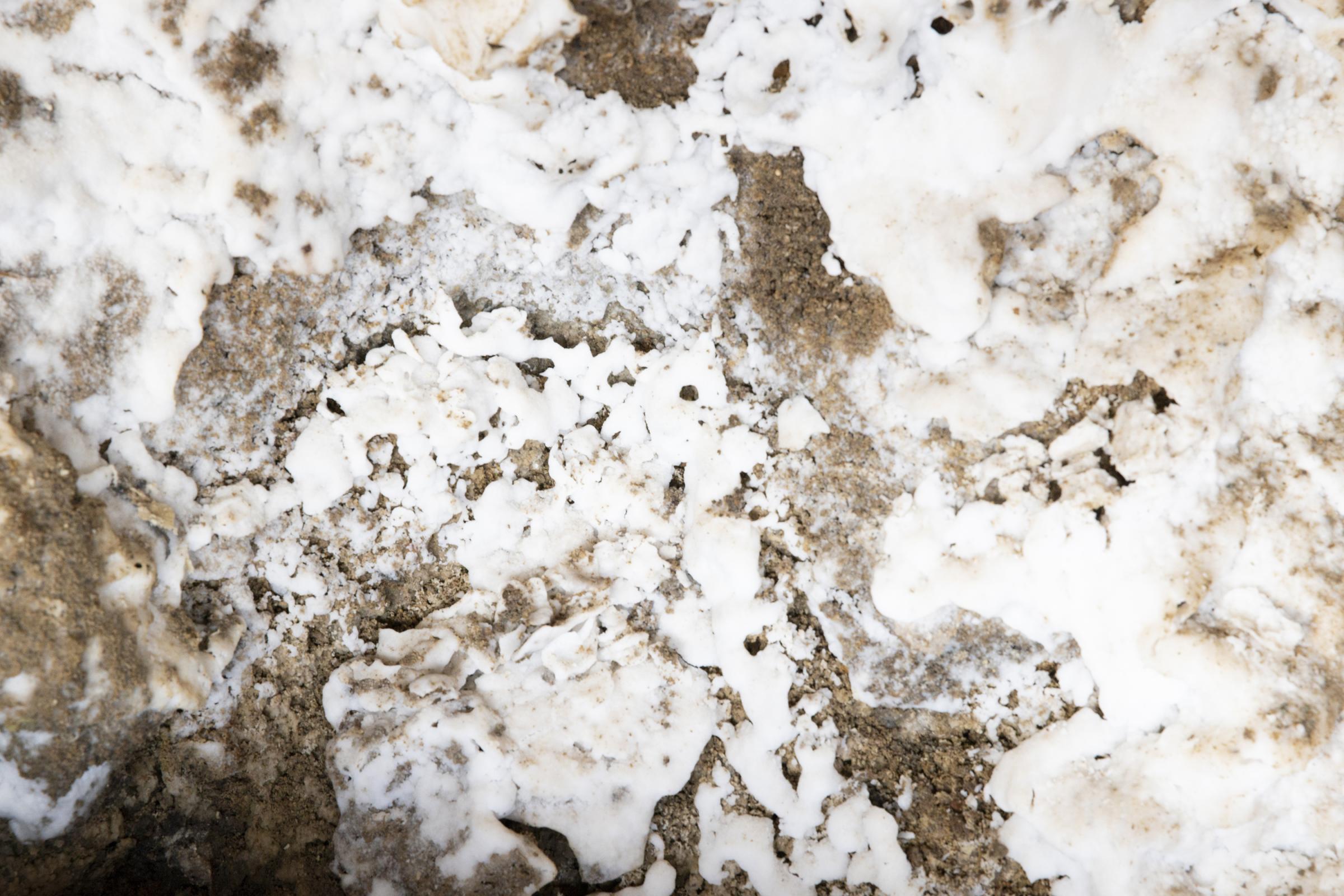
The town of Añana, part of the Basque Country, has a very particular history as it is a globally representative example of the history of salt and a point of high religiousness in Spain.
This thousand-year-old salt valley, which during the Triassic period was covered by the waters of a vast sea, is a unique phenomenon in the world, since it has been producing salt for 6,500 years in a process so traditional that it has hardly changed since the Romans.
It is believed to be the oldest salt pan in the world, the Romans in the 2nd century BC built the salt pan practically as we know it today.
Salt was considered the white gold of humanity. Around them, true colonial empires dominated by clans were created, sometimes religious, other times royal, and in most cases dominated by feudal families.
In the 5th century, the Roman settlement was undone and the population moved to live in the current Valle del Salado where they gradually grouped together according to feudal and ecclesiastical habits in small villages where everyone wanted to control production, giving rise to the creation of the community of knights and heirs of the Reales Salinas de Añana that is still in force.
The end of the state salt monopoly caused the town's activity to be ruined due to the high costs and the cheapest and most accessible maritime salt flats. Añana saw its production disappear to near disappearance. Today, thanks to the work of the Del Valle Salado Foundation, it is fully operational with a booming salt market.
This thousand-year-old salt valley, which during the Triassic period was covered by the waters of a vast sea, is a unique phenomenon in the world, since it has been producing salt for 6,500 years in a process so traditional that it has hardly changed since the Romans.
It is believed to be the oldest salt pan in the world, the Romans in the 2nd century BC built the salt pan practically as we know it today.
Salt was considered the white gold of humanity. Around them, true colonial empires dominated by clans were created, sometimes religious, other times royal, and in most cases dominated by feudal families.
In the 5th century, the Roman settlement was undone and the population moved to live in the current Valle del Salado where they gradually grouped together according to feudal and ecclesiastical habits in small villages where everyone wanted to control production, giving rise to the creation of the community of knights and heirs of the Reales Salinas de Añana that is still in force.
The end of the state salt monopoly caused the town's activity to be ruined due to the high costs and the cheapest and most accessible maritime salt flats. Añana saw its production disappear to near disappearance. Today, thanks to the work of the Del Valle Salado Foundation, it is fully operational with a booming salt market.
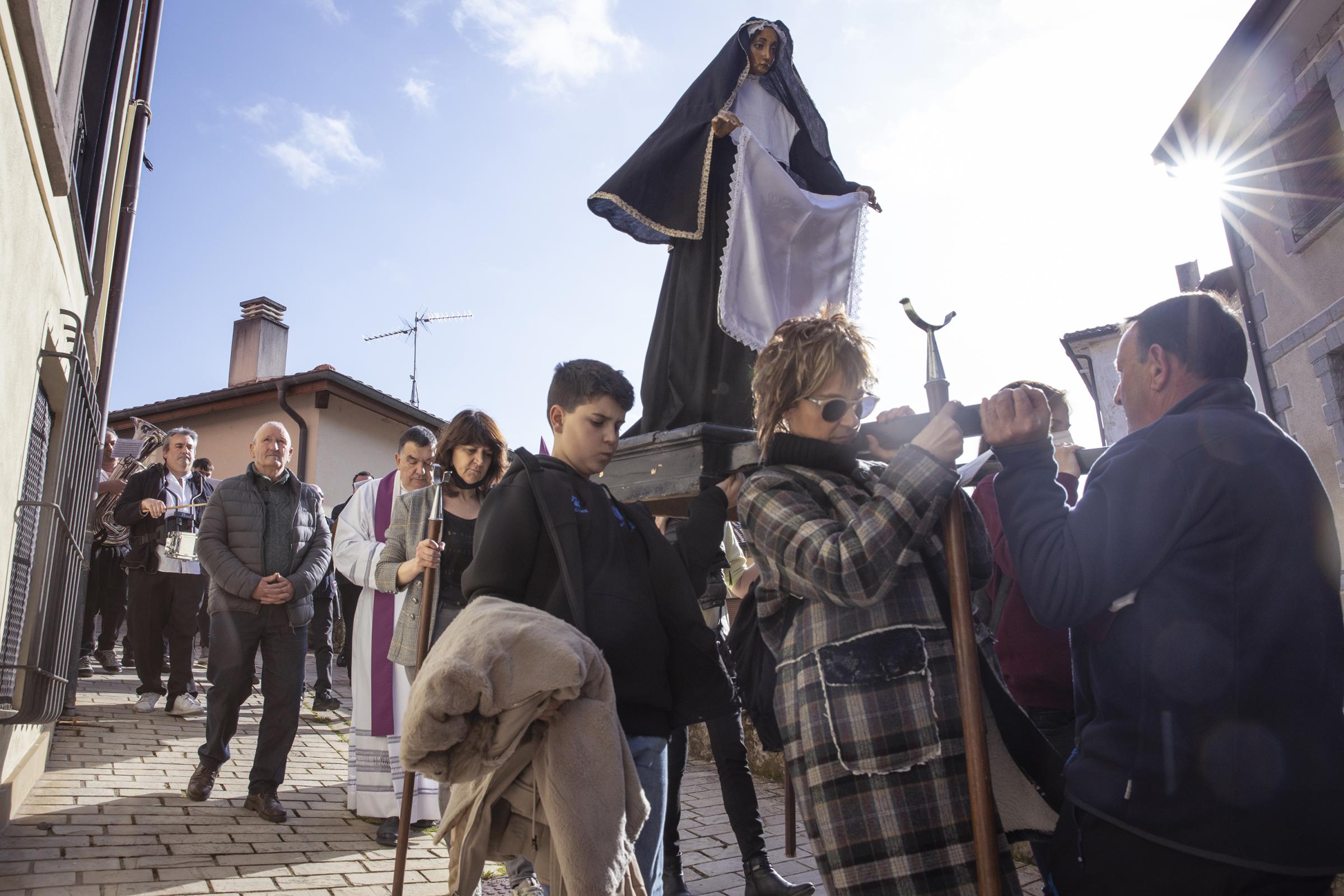
The town of Añana, part of the Basque Country, has a very particular history as it is a globally representative example of the history of salt and a point of high religiousness in Spain.
This thousand-year-old salt valley, which during the Triassic period was covered by the waters of a vast sea, is a unique phenomenon in the world, since it has been producing salt for 6,500 years in a process so traditional that it has hardly changed since the Romans.
It is believed to be the oldest salt pan in the world, the Romans in the 2nd century BC built the salt pan practically as we know it today.
Salt was considered the white gold of humanity. Around them, true colonial empires dominated by clans were created, sometimes religious, other times royal, and in most cases dominated by feudal families.
In the 5th century, the Roman settlement was undone and the population moved to live in the current Valle del Salado where they gradually grouped together according to feudal and ecclesiastical habits in small villages where everyone wanted to control production, giving rise to the creation of the community of knights and heirs of the Reales Salinas de Añana that is still in force.
The end of the state salt monopoly caused the town's activity to be ruined due to the high costs and the cheapest and most accessible maritime salt flats. Añana saw its production disappear to near disappearance. Today, thanks to the work of the Del Valle Salado Foundation, it is fully operational with a booming salt market.
This thousand-year-old salt valley, which during the Triassic period was covered by the waters of a vast sea, is a unique phenomenon in the world, since it has been producing salt for 6,500 years in a process so traditional that it has hardly changed since the Romans.
It is believed to be the oldest salt pan in the world, the Romans in the 2nd century BC built the salt pan practically as we know it today.
Salt was considered the white gold of humanity. Around them, true colonial empires dominated by clans were created, sometimes religious, other times royal, and in most cases dominated by feudal families.
In the 5th century, the Roman settlement was undone and the population moved to live in the current Valle del Salado where they gradually grouped together according to feudal and ecclesiastical habits in small villages where everyone wanted to control production, giving rise to the creation of the community of knights and heirs of the Reales Salinas de Añana that is still in force.
The end of the state salt monopoly caused the town's activity to be ruined due to the high costs and the cheapest and most accessible maritime salt flats. Añana saw its production disappear to near disappearance. Today, thanks to the work of the Del Valle Salado Foundation, it is fully operational with a booming salt market.
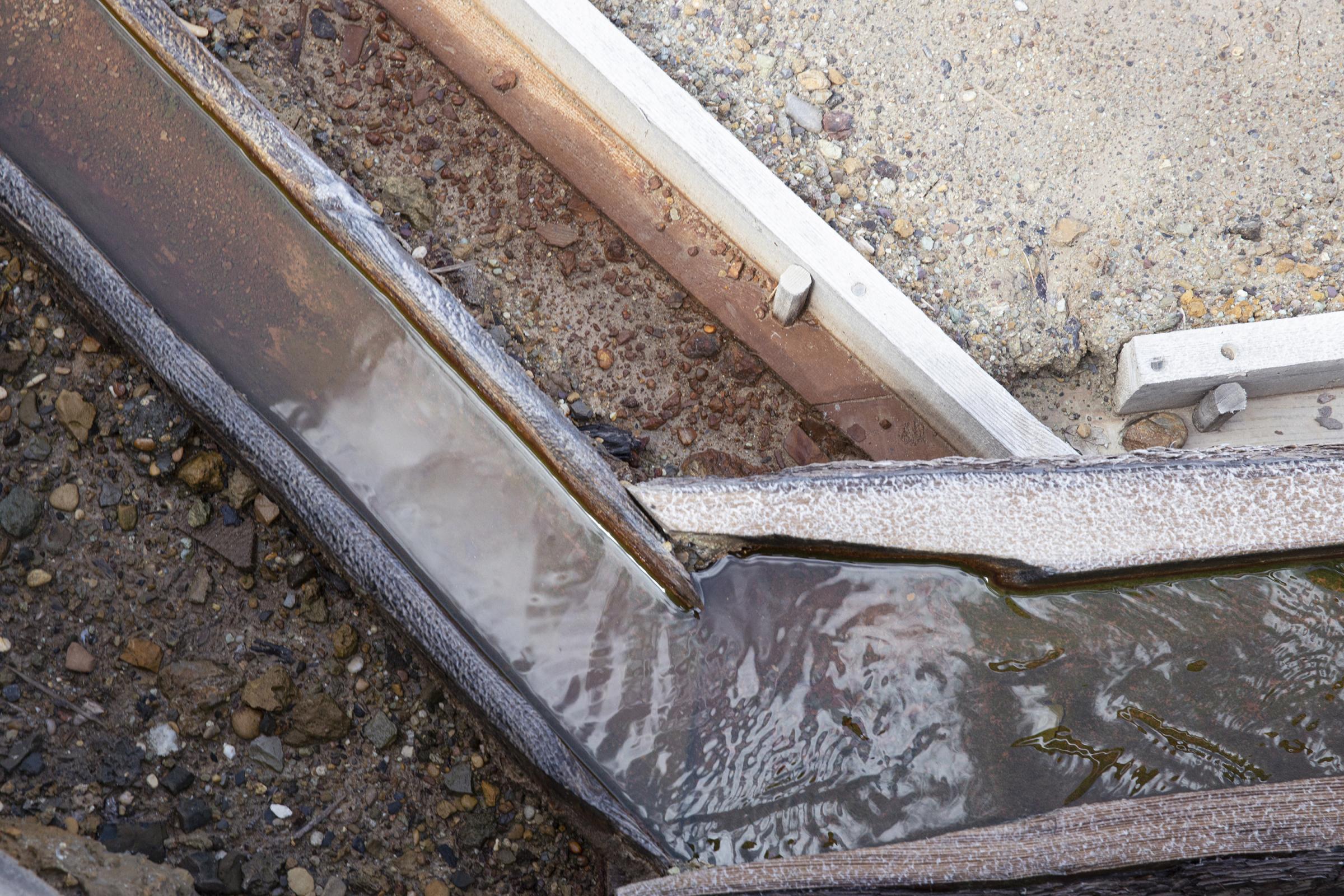
The town of Añana, part of the Basque Country, has a very particular history as it is a globally representative example of the history of salt and a point of high religiousness in Spain.
This thousand-year-old salt valley, which during the Triassic period was covered by the waters of a vast sea, is a unique phenomenon in the world, since it has been producing salt for 6,500 years in a process so traditional that it has hardly changed since the Romans.
It is believed to be the oldest salt pan in the world, the Romans in the 2nd century BC built the salt pan practically as we know it today.
Salt was considered the white gold of humanity. Around them, true colonial empires dominated by clans were created, sometimes religious, other times royal, and in most cases dominated by feudal families.
In the 5th century, the Roman settlement was undone and the population moved to live in the current Valle del Salado where they gradually grouped together according to feudal and ecclesiastical habits in small villages where everyone wanted to control production, giving rise to the creation of the community of knights and heirs of the Reales Salinas de Añana that is still in force.
The end of the state salt monopoly caused the town's activity to be ruined due to the high costs and the cheapest and most accessible maritime salt flats. Añana saw its production disappear to near disappearance. Today, thanks to the work of the Del Valle Salado Foundation, it is fully operational with a booming salt market.
This thousand-year-old salt valley, which during the Triassic period was covered by the waters of a vast sea, is a unique phenomenon in the world, since it has been producing salt for 6,500 years in a process so traditional that it has hardly changed since the Romans.
It is believed to be the oldest salt pan in the world, the Romans in the 2nd century BC built the salt pan practically as we know it today.
Salt was considered the white gold of humanity. Around them, true colonial empires dominated by clans were created, sometimes religious, other times royal, and in most cases dominated by feudal families.
In the 5th century, the Roman settlement was undone and the population moved to live in the current Valle del Salado where they gradually grouped together according to feudal and ecclesiastical habits in small villages where everyone wanted to control production, giving rise to the creation of the community of knights and heirs of the Reales Salinas de Añana that is still in force.
The end of the state salt monopoly caused the town's activity to be ruined due to the high costs and the cheapest and most accessible maritime salt flats. Añana saw its production disappear to near disappearance. Today, thanks to the work of the Del Valle Salado Foundation, it is fully operational with a booming salt market.
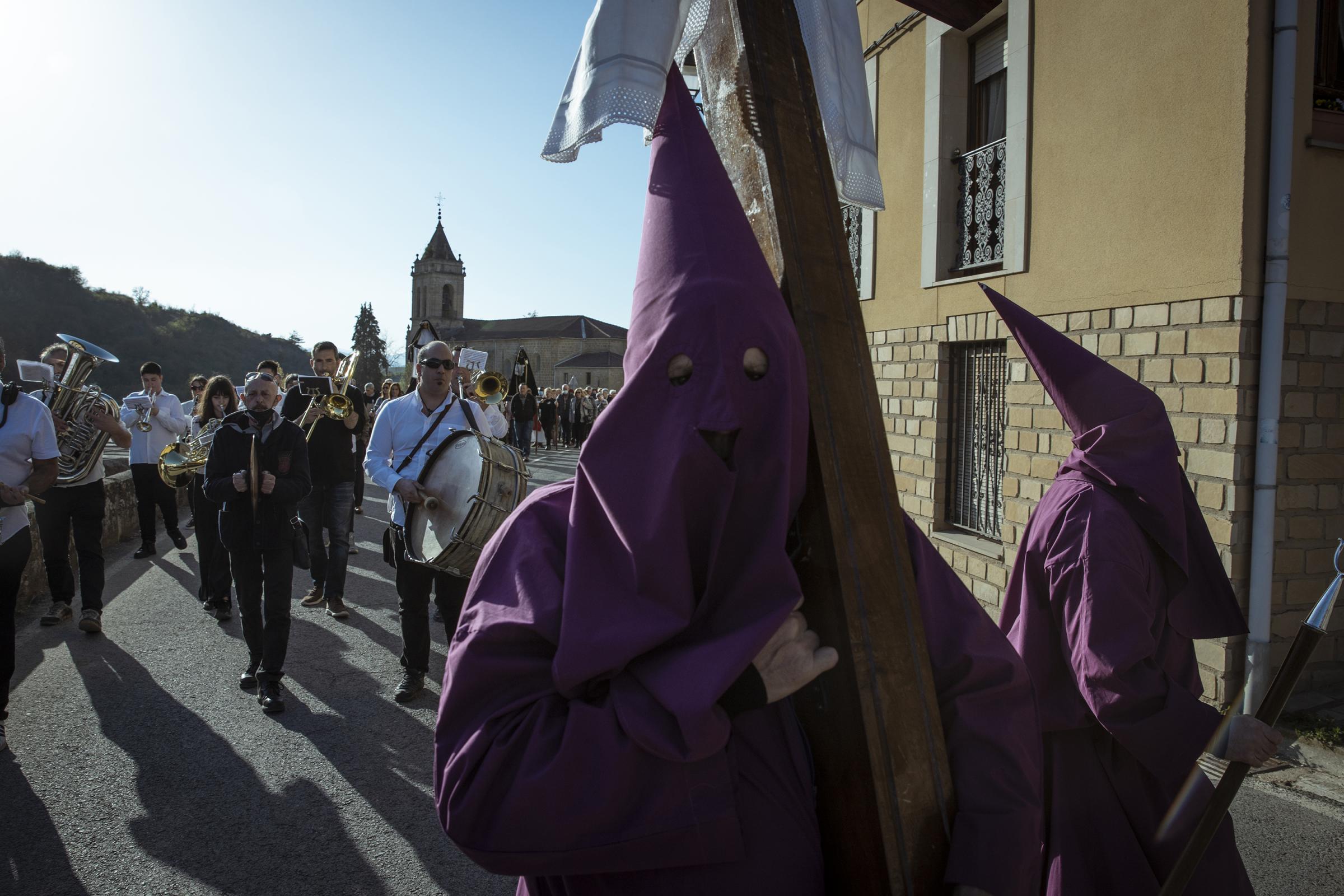
The town of Añana, part of the Basque Country, has a very particular history as it is a globally representative example of the history of salt and a point of high religiousness in Spain.
This thousand-year-old salt valley, which during the Triassic period was covered by the waters of a vast sea, is a unique phenomenon in the world, since it has been producing salt for 6,500 years in a process so traditional that it has hardly changed since the Romans.
It is believed to be the oldest salt pan in the world, the Romans in the 2nd century BC built the salt pan practically as we know it today.
Salt was considered the white gold of humanity. Around them, true colonial empires dominated by clans were created, sometimes religious, other times royal, and in most cases dominated by feudal families.
In the 5th century, the Roman settlement was undone and the population moved to live in the current Valle del Salado where they gradually grouped together according to feudal and ecclesiastical habits in small villages where everyone wanted to control production, giving rise to the creation of the community of knights and heirs of the Reales Salinas de Añana that is still in force.
The end of the state salt monopoly caused the town's activity to be ruined due to the high costs and the cheapest and most accessible maritime salt flats. Añana saw its production disappear to near disappearance. Today, thanks to the work of the Del Valle Salado Foundation, it is fully operational with a booming salt market.
This thousand-year-old salt valley, which during the Triassic period was covered by the waters of a vast sea, is a unique phenomenon in the world, since it has been producing salt for 6,500 years in a process so traditional that it has hardly changed since the Romans.
It is believed to be the oldest salt pan in the world, the Romans in the 2nd century BC built the salt pan practically as we know it today.
Salt was considered the white gold of humanity. Around them, true colonial empires dominated by clans were created, sometimes religious, other times royal, and in most cases dominated by feudal families.
In the 5th century, the Roman settlement was undone and the population moved to live in the current Valle del Salado where they gradually grouped together according to feudal and ecclesiastical habits in small villages where everyone wanted to control production, giving rise to the creation of the community of knights and heirs of the Reales Salinas de Añana that is still in force.
The end of the state salt monopoly caused the town's activity to be ruined due to the high costs and the cheapest and most accessible maritime salt flats. Añana saw its production disappear to near disappearance. Today, thanks to the work of the Del Valle Salado Foundation, it is fully operational with a booming salt market.
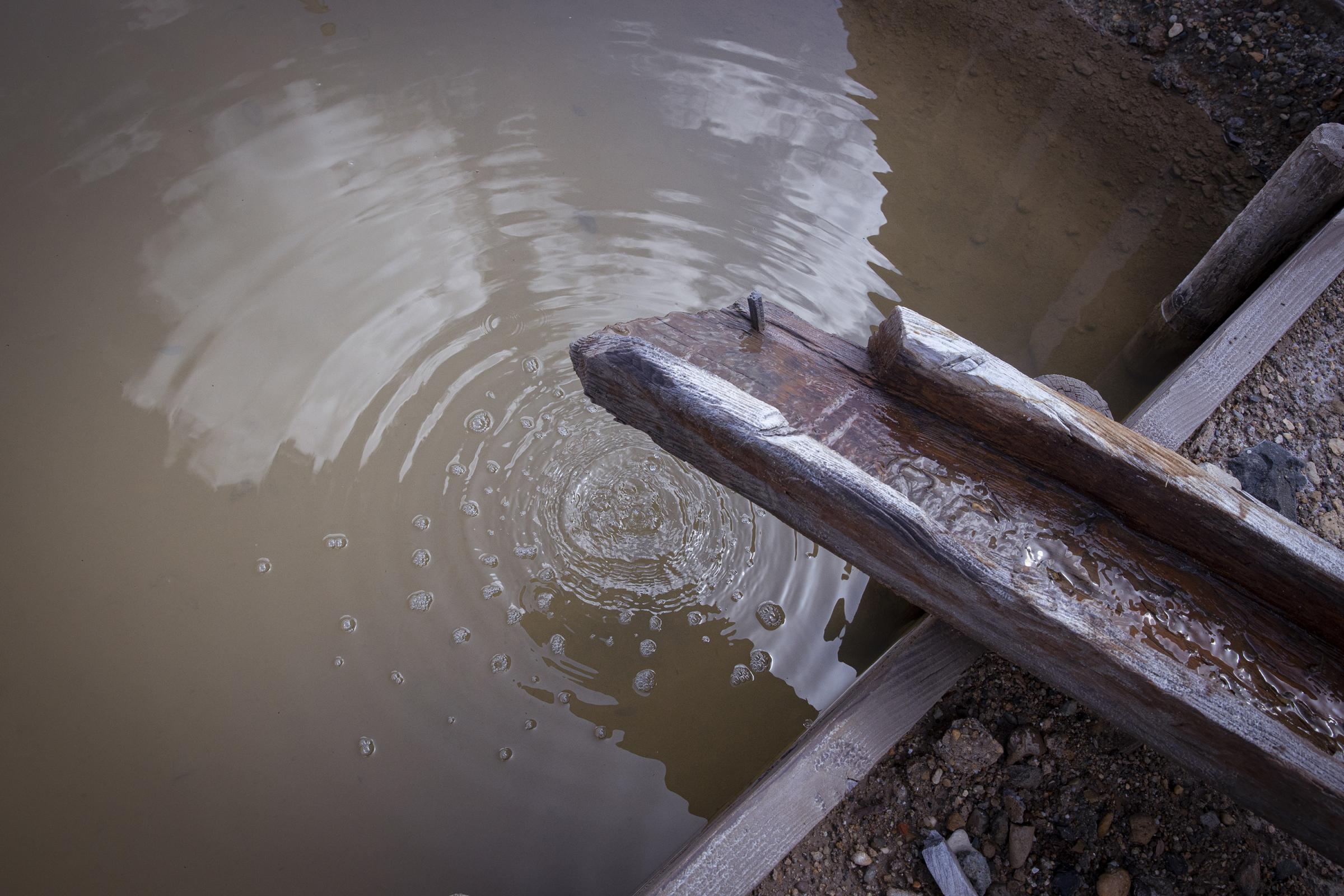
The town of Añana, part of the Basque Country, has a very particular history as it is a globally representative example of the history of salt and a point of high religiousness in Spain.
This thousand-year-old salt valley, which during the Triassic period was covered by the waters of a vast sea, is a unique phenomenon in the world, since it has been producing salt for 6,500 years in a process so traditional that it has hardly changed since the Romans.
It is believed to be the oldest salt pan in the world, the Romans in the 2nd century BC built the salt pan practically as we know it today.
Salt was considered the white gold of humanity. Around them, true colonial empires dominated by clans were created, sometimes religious, other times royal, and in most cases dominated by feudal families.
In the 5th century, the Roman settlement was undone and the population moved to live in the current Valle del Salado where they gradually grouped together according to feudal and ecclesiastical habits in small villages where everyone wanted to control production, giving rise to the creation of the community of knights and heirs of the Reales Salinas de Añana that is still in force.
The end of the state salt monopoly caused the town's activity to be ruined due to the high costs and the cheapest and most accessible maritime salt flats. Añana saw its production disappear to near disappearance. Today, thanks to the work of the Del Valle Salado Foundation, it is fully operational with a booming salt market.
This thousand-year-old salt valley, which during the Triassic period was covered by the waters of a vast sea, is a unique phenomenon in the world, since it has been producing salt for 6,500 years in a process so traditional that it has hardly changed since the Romans.
It is believed to be the oldest salt pan in the world, the Romans in the 2nd century BC built the salt pan practically as we know it today.
Salt was considered the white gold of humanity. Around them, true colonial empires dominated by clans were created, sometimes religious, other times royal, and in most cases dominated by feudal families.
In the 5th century, the Roman settlement was undone and the population moved to live in the current Valle del Salado where they gradually grouped together according to feudal and ecclesiastical habits in small villages where everyone wanted to control production, giving rise to the creation of the community of knights and heirs of the Reales Salinas de Añana that is still in force.
The end of the state salt monopoly caused the town's activity to be ruined due to the high costs and the cheapest and most accessible maritime salt flats. Añana saw its production disappear to near disappearance. Today, thanks to the work of the Del Valle Salado Foundation, it is fully operational with a booming salt market.
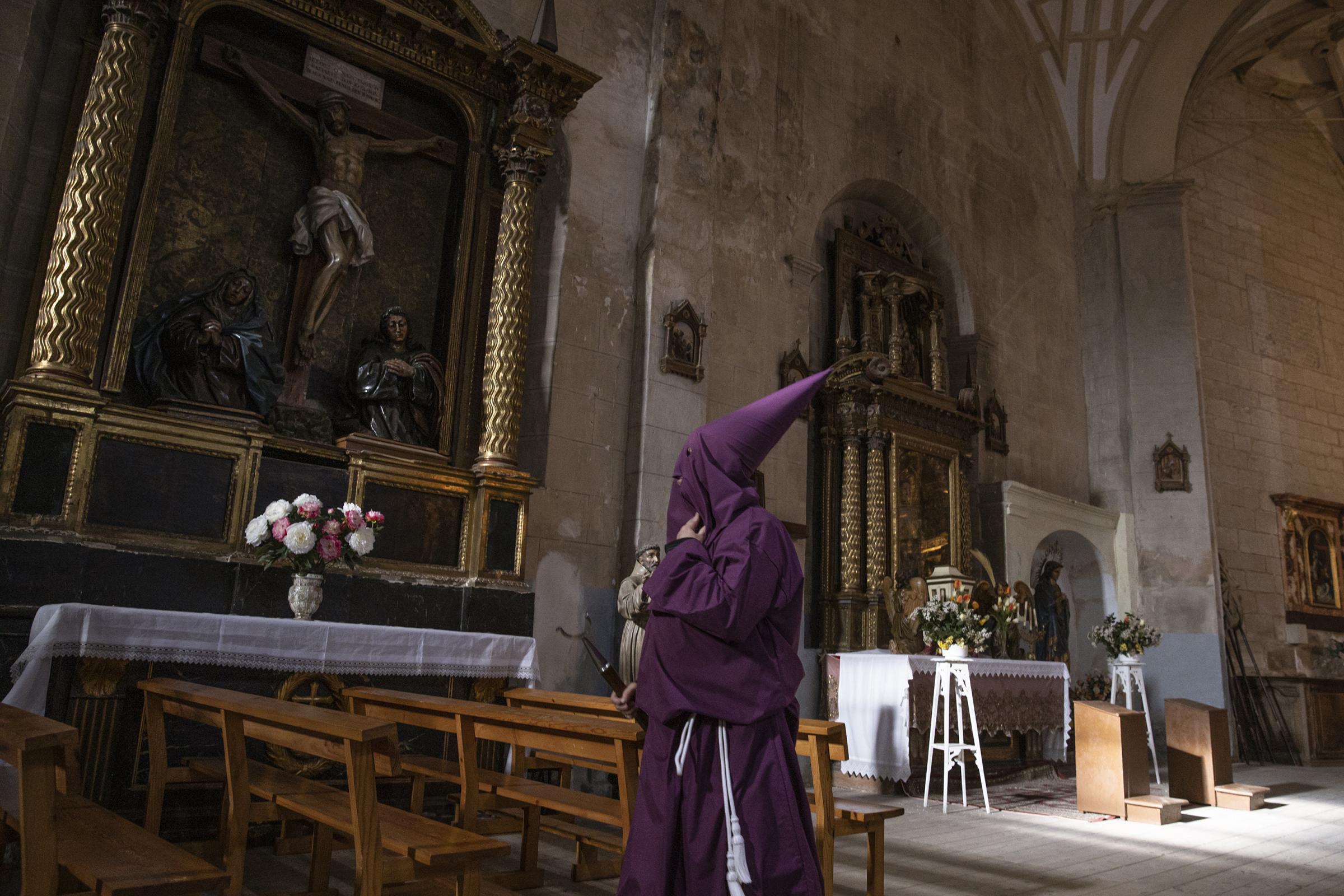
The town of Añana, part of the Basque Country, has a very particular history as it is a globally representative example of the history of salt and a point of high religiousness in Spain.
This thousand-year-old salt valley, which during the Triassic period was covered by the waters of a vast sea, is a unique phenomenon in the world, since it has been producing salt for 6,500 years in a process so traditional that it has hardly changed since the Romans.
It is believed to be the oldest salt pan in the world, the Romans in the 2nd century BC built the salt pan practically as we know it today.
Salt was considered the white gold of humanity. Around them, true colonial empires dominated by clans were created, sometimes religious, other times royal, and in most cases dominated by feudal families.
In the 5th century, the Roman settlement was undone and the population moved to live in the current Valle del Salado where they gradually grouped together according to feudal and ecclesiastical habits in small villages where everyone wanted to control production, giving rise to the creation of the community of knights and heirs of the Reales Salinas de Añana that is still in force.
The end of the state salt monopoly caused the town's activity to be ruined due to the high costs and the cheapest and most accessible maritime salt flats. Añana saw its production disappear to near disappearance. Today, thanks to the work of the Del Valle Salado Foundation, it is fully operational with a booming salt market.
This thousand-year-old salt valley, which during the Triassic period was covered by the waters of a vast sea, is a unique phenomenon in the world, since it has been producing salt for 6,500 years in a process so traditional that it has hardly changed since the Romans.
It is believed to be the oldest salt pan in the world, the Romans in the 2nd century BC built the salt pan practically as we know it today.
Salt was considered the white gold of humanity. Around them, true colonial empires dominated by clans were created, sometimes religious, other times royal, and in most cases dominated by feudal families.
In the 5th century, the Roman settlement was undone and the population moved to live in the current Valle del Salado where they gradually grouped together according to feudal and ecclesiastical habits in small villages where everyone wanted to control production, giving rise to the creation of the community of knights and heirs of the Reales Salinas de Añana that is still in force.
The end of the state salt monopoly caused the town's activity to be ruined due to the high costs and the cheapest and most accessible maritime salt flats. Añana saw its production disappear to near disappearance. Today, thanks to the work of the Del Valle Salado Foundation, it is fully operational with a booming salt market.
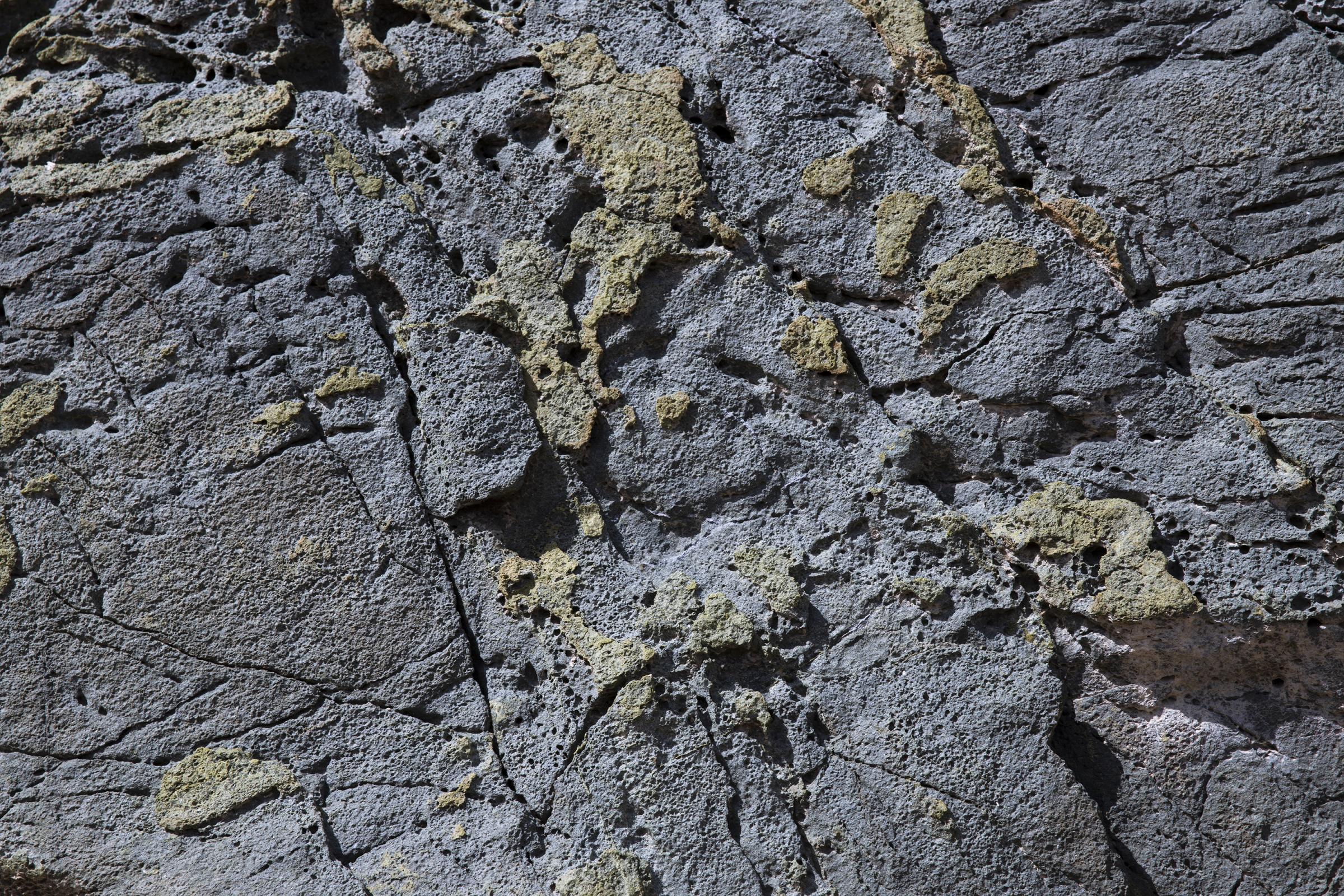
The town of Añana, part of the Basque Country, has a very particular history as it is a globally representative example of the history of salt and a point of high religiousness in Spain.
This thousand-year-old salt valley, which during the Triassic period was covered by the waters of a vast sea, is a unique phenomenon in the world, since it has been producing salt for 6,500 years in a process so traditional that it has hardly changed since the Romans.
It is believed to be the oldest salt pan in the world, the Romans in the 2nd century BC built the salt pan practically as we know it today.
Salt was considered the white gold of humanity. Around them, true colonial empires dominated by clans were created, sometimes religious, other times royal, and in most cases dominated by feudal families.
In the 5th century, the Roman settlement was undone and the population moved to live in the current Valle del Salado where they gradually grouped together according to feudal and ecclesiastical habits in small villages where everyone wanted to control production, giving rise to the creation of the community of knights and heirs of the Reales Salinas de Añana that is still in force.
The end of the state salt monopoly caused the town's activity to be ruined due to the high costs and the cheapest and most accessible maritime salt flats. Añana saw its production disappear to near disappearance. Today, thanks to the work of the Del Valle Salado Foundation, it is fully operational with a booming salt market.
This thousand-year-old salt valley, which during the Triassic period was covered by the waters of a vast sea, is a unique phenomenon in the world, since it has been producing salt for 6,500 years in a process so traditional that it has hardly changed since the Romans.
It is believed to be the oldest salt pan in the world, the Romans in the 2nd century BC built the salt pan practically as we know it today.
Salt was considered the white gold of humanity. Around them, true colonial empires dominated by clans were created, sometimes religious, other times royal, and in most cases dominated by feudal families.
In the 5th century, the Roman settlement was undone and the population moved to live in the current Valle del Salado where they gradually grouped together according to feudal and ecclesiastical habits in small villages where everyone wanted to control production, giving rise to the creation of the community of knights and heirs of the Reales Salinas de Añana that is still in force.
The end of the state salt monopoly caused the town's activity to be ruined due to the high costs and the cheapest and most accessible maritime salt flats. Añana saw its production disappear to near disappearance. Today, thanks to the work of the Del Valle Salado Foundation, it is fully operational with a booming salt market.
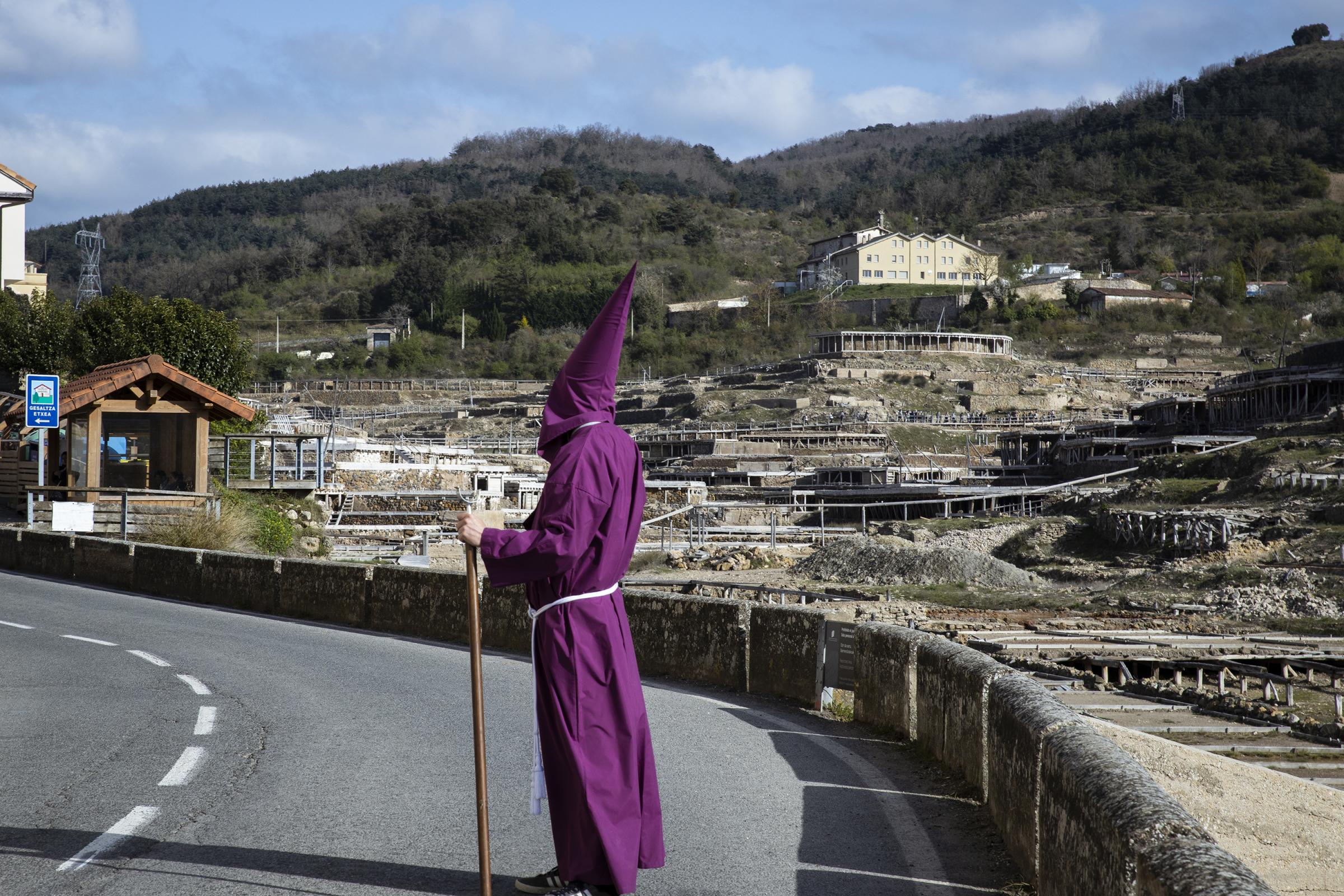
The town of Añana, part of the Basque Country, has a very particular history as it is a globally representative example of the history of salt and a point of high religiousness in Spain.
This thousand-year-old salt valley, which during the Triassic period was covered by the waters of a vast sea, is a unique phenomenon in the world, since it has been producing salt for 6,500 years in a process so traditional that it has hardly changed since the Romans.
It is believed to be the oldest salt pan in the world, the Romans in the 2nd century BC built the salt pan practically as we know it today.
Salt was considered the white gold of humanity. Around them, true colonial empires dominated by clans were created, sometimes religious, other times royal, and in most cases dominated by feudal families.
In the 5th century, the Roman settlement was undone and the population moved to live in the current Valle del Salado where they gradually grouped together according to feudal and ecclesiastical habits in small villages where everyone wanted to control production, giving rise to the creation of the community of knights and heirs of the Reales Salinas de Añana that is still in force.
The end of the state salt monopoly caused the town's activity to be ruined due to the high costs and the cheapest and most accessible maritime salt flats. Añana saw its production disappear to near disappearance. Today, thanks to the work of the Del Valle Salado Foundation, it is fully operational with a booming salt market.
This thousand-year-old salt valley, which during the Triassic period was covered by the waters of a vast sea, is a unique phenomenon in the world, since it has been producing salt for 6,500 years in a process so traditional that it has hardly changed since the Romans.
It is believed to be the oldest salt pan in the world, the Romans in the 2nd century BC built the salt pan practically as we know it today.
Salt was considered the white gold of humanity. Around them, true colonial empires dominated by clans were created, sometimes religious, other times royal, and in most cases dominated by feudal families.
In the 5th century, the Roman settlement was undone and the population moved to live in the current Valle del Salado where they gradually grouped together according to feudal and ecclesiastical habits in small villages where everyone wanted to control production, giving rise to the creation of the community of knights and heirs of the Reales Salinas de Añana that is still in force.
The end of the state salt monopoly caused the town's activity to be ruined due to the high costs and the cheapest and most accessible maritime salt flats. Añana saw its production disappear to near disappearance. Today, thanks to the work of the Del Valle Salado Foundation, it is fully operational with a booming salt market.
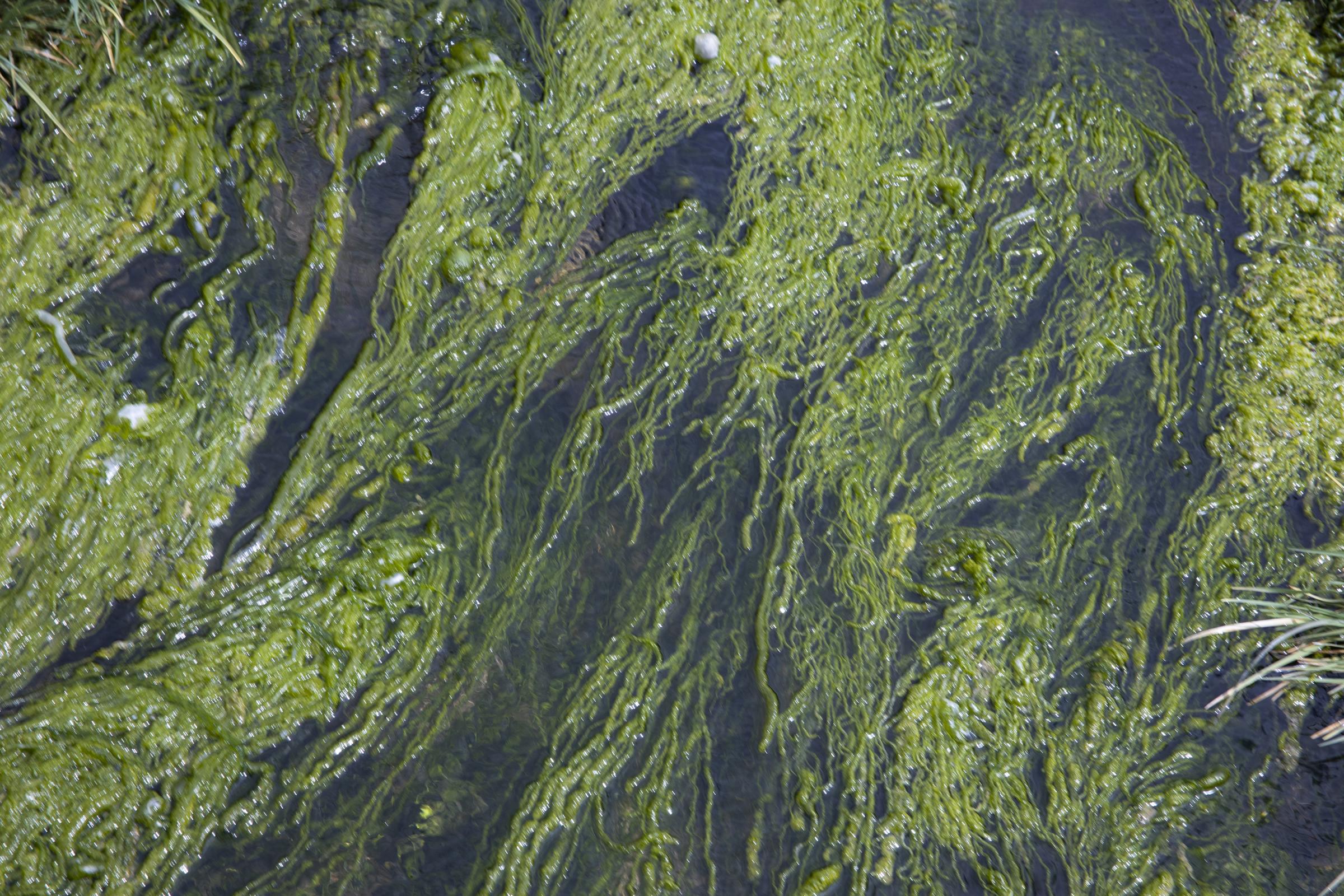
The town of Añana, part of the Basque Country, has a very particular history as it is a globally representative example of the history of salt and a point of high religiousness in Spain.
This thousand-year-old salt valley, which during the Triassic period was covered by the waters of a vast sea, is a unique phenomenon in the world, since it has been producing salt for 6,500 years in a process so traditional that it has hardly changed since the Romans.
It is believed to be the oldest salt pan in the world, the Romans in the 2nd century BC built the salt pan practically as we know it today.
Salt was considered the white gold of humanity. Around them, true colonial empires dominated by clans were created, sometimes religious, other times royal, and in most cases dominated by feudal families.
In the 5th century, the Roman settlement was undone and the population moved to live in the current Valle del Salado where they gradually grouped together according to feudal and ecclesiastical habits in small villages where everyone wanted to control production, giving rise to the creation of the community of knights and heirs of the Reales Salinas de Añana that is still in force.
The end of the state salt monopoly caused the town's activity to be ruined due to the high costs and the cheapest and most accessible maritime salt flats. Añana saw its production disappear to near disappearance. Today, thanks to the work of the Del Valle Salado Foundation, it is fully operational with a booming salt market.
This thousand-year-old salt valley, which during the Triassic period was covered by the waters of a vast sea, is a unique phenomenon in the world, since it has been producing salt for 6,500 years in a process so traditional that it has hardly changed since the Romans.
It is believed to be the oldest salt pan in the world, the Romans in the 2nd century BC built the salt pan practically as we know it today.
Salt was considered the white gold of humanity. Around them, true colonial empires dominated by clans were created, sometimes religious, other times royal, and in most cases dominated by feudal families.
In the 5th century, the Roman settlement was undone and the population moved to live in the current Valle del Salado where they gradually grouped together according to feudal and ecclesiastical habits in small villages where everyone wanted to control production, giving rise to the creation of the community of knights and heirs of the Reales Salinas de Añana that is still in force.
The end of the state salt monopoly caused the town's activity to be ruined due to the high costs and the cheapest and most accessible maritime salt flats. Añana saw its production disappear to near disappearance. Today, thanks to the work of the Del Valle Salado Foundation, it is fully operational with a booming salt market.
White Gold of Añaña
#Agriculture
#Christianity

Sebastian Rodriguez Vergara
Photographer
based in Buenos Aires
Public Story
White Gold of Añaña
Copyright
Sebastian Rodriguez Vergara
2024
Updated Apr 2023
Location
Añaña, Pais Vasco, Spain
Topics
Agriculture, Christianity, Conservation, Culture stories, Documentary, Easter, Essays, Iconic places, Nature, Photography, Photojournalism, Salt, Texture, Water
